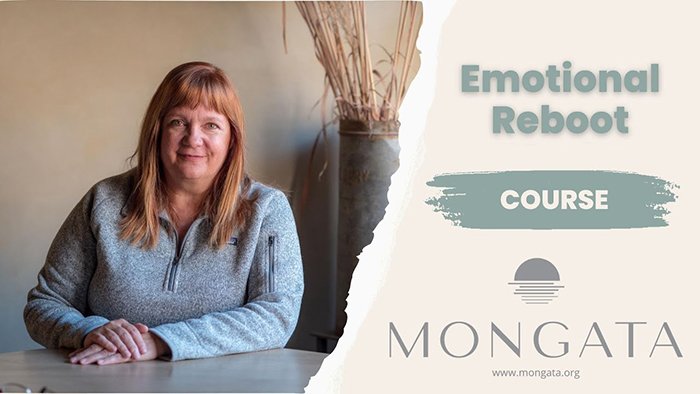How Do You Build Emotional Resilience? 7 Ways Mongata Can Help
Emotional resilience is the ability to recover from life’s challenges with strength, adaptability, and grace. It allows you to stay grounded during uncertainty, to soften rather than shut down in the face of stress, and to move through difficult situations with self-awareness instead of reactivity. At Mongata, we believe that emotional resilience is a skill you build over time, through conscious practices that connect you with your breath, body, and deeper wisdom.
This guide offers seven practical ways to begin or deepen your journey of developing emotional resilience. Whether you are seeking daily tools, community support, or a deeper understanding of your own patterns, Mongata is here to help.
What Emotional Resilience Really Means
Resilience is often misunderstood as a kind of toughness or emotional detachment. In truth, emotional resilience is about staying connected to yourself while navigating change, stress, or discomfort. It is your inner capacity to regulate emotions, recover from setbacks, and move forward with clarity.
Scientifically, resilience involves the nervous system and its ability to return to a balanced state after activation. Emotionally, it is rooted in self-trust, presence, and the ability to meet difficulty with compassion rather than resistance. Strong resilience supports long-term mental health, physical vitality, and healthy relationships. It allows us to hold space for complexity and still move forward. With practice, anyone can develop resilience. You do not need to be perfect. You simply need to be present.
1. Practice Nervous System-Aware Breathwork
Breathwork is one of the most direct and powerful ways to build emotional resilience. When practiced with awareness, breath becomes a tool for regulating the nervous system, releasing tension, and increasing your ability to stay with difficult emotions.
At Mongata, we offer breathwork classes that teach you how to work with your breath gently and intentionally. You will learn both activating and calming techniques so you can support yourself depending on your emotional state. Over time, breathwork increases your capacity to sit with discomfort without becoming overwhelmed.
2. Build a Daily Anchor Through Meditation
Meditation creates a steady inner anchor. By returning to the same place in your awareness each day, even for a few quiet minutes, you teach your mind and body that safety exists within you.
A regular meditation practice improves emotional regulation, enhances your ability to manage stress, and cultivates presence. At Mongata, our online resources and courses are designed to meet you exactly where you are. You do not need prior experience. You only need a willingness to pause.
We encourage you to create a dedicated sacred space at home, however small. This space becomes a visual reminder that you are committed to your well-being. Over time, this simple act can change how you show up in the world.
3. Use Sound to Shift Emotional States and Support Release
Sound is more than something we hear. It is something we feel. Vibrational healing through sound can help release stuck emotions, soothe the nervous system, and create space for deep emotional processing.
Mongata’s sound baths are carefully designed to support emotional release and energetic balance.
Whether you attend in person or listen to a recorded session, sound allows your system to reset without words or analysis. It speaks directly to the parts of you that are beyond thought. This is especially supportive for those who carry unspoken emotional weight.
4. Repattern Your Emotional Triggers Through Somatic Awareness
Many of our reactions to stress are not logical. They are stored in the body and show up as reflexes. Somatic awareness is the practice of listening to your body to understand your emotional landscape. By slowing down and tuning in, you can start to notice where you hold tension, fear, or resistance. With the support of breath, movement, and sound, you can begin to gently repattern those responses.
5. Lean into Community for Co-Regulation
Resilience is not a solo pursuit. One of the most powerful ways to enhance your emotional resilience is by connecting with others in a safe, supportive space. When we come together in community, our nervous systems have the opportunity to co-regulate. This means that being with others who are grounded and present helps your own system return to balance.
Mongata’s group offerings include healing circles and breathwork sessions that offer an intentional container where you can be seen, held, and heard. In the community, resilience becomes a shared practice.
You are reminded that you are not alone. You are part of something larger. This knowing is deeply healing.
6. Create Rituals That Foster a Positive Outlook
Rituals give rhythm to your healing and help you intentionally return to a grounded perspective. Whether it is a morning journaling practice, a gratitude walk at sunset, or a full moon ceremony, rituals help you process life with awareness. At Mongata, we encourage you to create rituals that resonate with your own spiritual and emotional language. These can be simple or elaborate. What matters is the intention.
We also offer seasonal events and guided travel experiences to support you in creating your own healing rhythms. When you engage with life as a ceremony, you begin to cultivate a mindset of meaning, which strengthens your capacity to hold both joy and difficulty with grace.
7. Invest in Your Inner Life With Compassionate Curiosity
One of the most overlooked elements of emotional resilience is self-understanding. When you learn about your patterns, your energy type, and your emotional needs, you can meet yourself with more compassion and less judgment.
Mongata offers Human Design sessions to help you understand how you are naturally wired to process information, relate to others, and make decisions. This knowledge can illuminate why certain stressors affect you deeply while others may not.
The more you understand yourself, the more gracefully you can navigate difficult situations. Compassionate curiosity allows you to stay connected to your inner truth even in times of chaos.
When to Seek Support Beyond Self-Practice
There may be times when personal practices are not enough. If you are experiencing overwhelming emotional pain, persistent numbness, or a sense of disconnection that does not shift, it is wise to seek professional support. Resilience does not mean doing it all alone. It means knowing when to reach out.
Begin Where You Are
You do not need to be calm or confident to begin building resilience. You simply need to be willing. Choose one of the practices above that speaks to you. Try it consistently for a few weeks. Notice how your body responds. Let that be the start. Emotional resilience is built breath by breath, day by day. It is not something you achieve. It is something you live into.
Let Mongata Be a Guide in Your Resilience Journey
At Mongata, we believe resilience is not about becoming tougher. It is about becoming more whole.
Through sound, breathwork, meditation, and community, we support you in building an inner foundation that can hold the fullness of life. Explore our upcoming events, private sessions, and the Emotional Reboot online course. Whether you are starting fresh or coming back to your practice after a long pause, we are here to support you.









